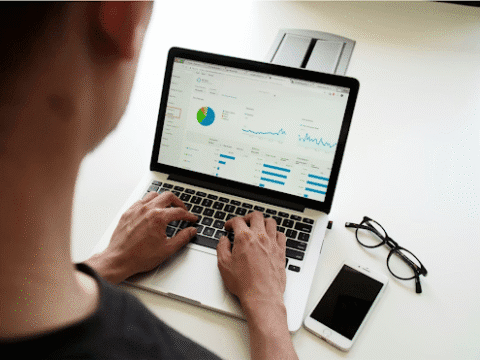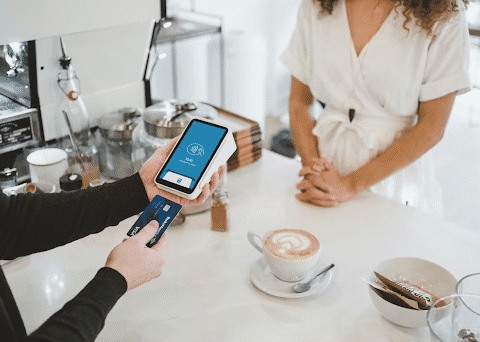Explore Unsecured Loan Options for Canadian Businesses
When you’re running a business, finding the right financing can feel like a full-time job. Not every entrepreneur has assets to put up as collateral, and that’s where unsecured loans come in. Unsecured loans let you borrow money based on your creditworthiness and business performance, without needing to risk property or equipment. They’re especially appealing to startups or small businesses that are still building their asset base. While interest rates can be higher than secured loans, the trade-off is faster access to cash and fewer hoops to jump through.
So let’s take a look at how unsecured loans work in Canada, what lenders are looking for, and how to choose the best option for your business, no collateral required.
What Are Unsecured Business Loans and How Do They Work?
Unsecured business loans are financing options that don’t require you to pledge any collateral, meaning you won’t need to risk your property, equipment, or other assets to get approved. Instead, lenders evaluate your application based on factors like your credit score, business revenue, and financial history. Because there’s more risk for the lender, unsecured loans typically come with higher interest rates and shorter repayment terms than secured loans.
Even still, they’re a great option for business owners who need fast cash or don’t own significant assets. Repayment is usually monthly and may include fixed or variable interest, depending on the lender. Approval is also typically faster, sometimes within 24 to 72 hours, because there’s less paperwork and no collateral to appraise.
Unsecured loans are particularly useful for short-term needs like covering payroll, stocking up on inventory, or bridging a slow season. They’re flexible, fast, and often easier to qualify for than you might think.
Types of Unsecured Loan Options Available in Canada
Before you dive into interest rates and application forms, it helps to know exactly which unsecured financing options are on the table. “Unsecured” simply means you’re not pledging collateral, no buildings, vehicles, or equipment at stake, so lenders rely on credit scores, cash‑flow data, and business performance instead. Each product has its own strengths, costs, and ideal use‑cases. Below is a quick look at the main unsecured loan types available to Canadian businesses, so you can match the right tool to your current needs and growth plans.
Unsecured Term Loans
An unsecured term loan gives you a lump sum up front, then locks you into fixed repayments, usually monthly, over one to five years. Approval hinges on your credit score, revenue history, and time in business, but there’s no collateral to appraise, so decisions are fast. Interest rates sit higher than secured loans, yet remain predictable, which makes budgeting simpler. Many fintech lenders let you apply entirely online and fund within a few days, perfect for working‑capital boosts, equipment upgrades, or marketing campaigns.
Business Lines of Credit
Think of an unsecured business line of credit as a reusable cash cushion. You’re approved for a maximum limit, say $50,000, but only pay interest on the portion you actually draw. Once you repay, the credit replenishes, ready for the next cash‑flow hiccup. Banks, credit unions, and online lenders all offer this product, typically tying rates to your credit profile and annual sales. Qualifying often requires at least six months of revenue history; stellar credit isn’t mandatory, but it helps. Lines of credit shine for seasonality, inventory purchases, or bridging invoice gaps because you borrow only what you need, when you need it.
Merchant Cash Advances (MCAs)
Merchant cash advances aren’t loans in the traditional sense; they’re lump‑sum advances repaid via a fixed percentage of your daily card sales. That structure syncs repayments with revenue: pay more on busy days, less on slow ones. Approval is lightning‑fast, often under 24 hours, because lenders focus on your recent debit and credit card volume, not your credit score. The trade‑off is cost: factor rates can translate into effective APRs north of 50%. MCAs work best for retail, restaurant, or e‑commerce businesses with healthy, predictable transaction flow that need money yesterday and plan to clear the advance quickly.
Business Credit Cards
An unsecured business credit card offers instant purchasing power and a revolving limit that grows with your payment history. Approval rests mainly on your personal credit score and reported business income, with many issuers catering to startups as young as six months old. You won’t pay interest if you clear the balance each month, but carrying a balance, however, triggers steep rates that can exceed 19–22% APR. Used wisely, cards are fantastic for small, frequent expenses like office supplies, software subscriptions, or travel bookings, and they help build a separate business credit profile.
Pros and Cons of Unsecured Business Loans
| Pros | Cons |
| No collateral required | Higher interest rates than secured loans |
| Faster approval and funding | Shorter repayment terms |
| Great for startups or businesses without assets | May require strong credit or revenue |
| Flexible uses | Limited borrowing amounts compared to secured loans |
Unsecured business loans offer convenience, speed, and access without putting your assets on the line. They’re especially useful if you need cash quickly or don’t want to tie up your business or personal property. However, they aren’t for everyone. The higher risk for lenders means you’ll likely face steeper rates, and the loan amounts may be smaller. If your credit score isn’t great, you may still qualify, but at a cost. So while unsecured loans have their pros, they certainly have their cons as well.
How to Qualify for an Unsecured Business Loan in Canada
Qualifying for an unsecured business loan in Canada isn’t overly complicated, but being prepared can make all the difference. Since these loans don’t require collateral, lenders place more weight on your creditworthiness and business performance. Here’s what you’ll typically need to qualify:
- Personal and business credit score (ideally 600+, though some fintech lenders accept lower)
- Proof of steady business revenue, usually 6–12 months of operating history
- Bank statements and recent tax filings
- Valid business registration and licensing documents
- A simple business plan or financial projections, especially if you’re a newer business
- A realistic loan amount and repayment strategy
Unsecured loan options in Canada provide an accessible path to funding for businesses that may not have physical assets to put up as collateral. While the interest rates can be higher and the repayment windows shorter, they’re often worth it for the right business situation. It’s imperative to do your homework: understand what you’re signing up for, compare your options carefully, and choose a lender that values transparency. With the right planning and responsible borrowing, unsecured loans can help move your business forward without unnecessary risk.




